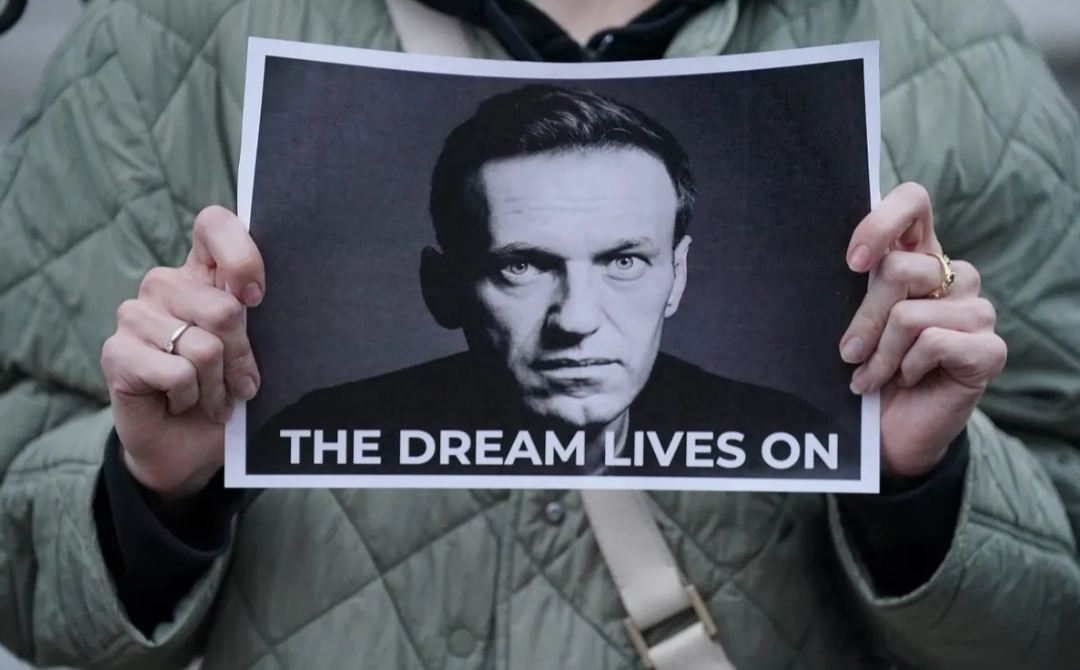Excerpt: An in-depth look at the circumstances surrounding Russian Opposition Leader and journalist Alexei Navalny’s recent death; and what his passing means for Russia’s future.
“He loved life in many ways … he knew so much, and he knew so many people. He saw so many things … he had so many thoughts.” (Ilya Krasilshchik on Alexei Navalny)
On February 16th 2024, the global community was shocked with the unexpected death of Alexei Navalny; one of Russia’s most prominent journalists, former lawyer, leader of the opposition and fierce critic of current Russian President Vladimir Putin. Navalyn died at age 46 while serving a 19-year sentence for charges of extremism in the IK-3 penal colony prison, Russia’s highest-level security prison located above the Arctic Circle. Russia’s Federal Penitentiary Service reported that Navalny felt unwell after taking his daily walk, later lost consciousness, and eventually passed away after their medical team failed to revive him.
In a tweet posted just hours after the news of Navalny’s passing broke, the President of the European Council, Charles Michel, asserted that the “EU [European Union] holds the Russian regime [solely] responsible for this tragic death.” Across the pond, a White House spokesperson for the U.S. President submitted that Biden plans to “hold Russia accountable for what happened to Mr. Navalny,” in addition to making promises that America will increase their efforts in holding Putin responsible for all “actions over the course of this vicious and brutal war [the 2022 Russian invasion of Ukraine as an escalation of the ongoing Russo-Ukrainian War].”
The two primary reasons that Russia has come under global fire for the death of Navalny relate to the Russian prison conditions where Navalny was being held, and accusations of foul play that have come about to explain his sudden and unexpected passing. Because of these reasons, Navalny’s wife and the international political community have sought answers for his death and turned to the Kremlin to demand accountability for their potential role.
In a court video shown just a day before his death, Navalny appeared healthy and motivated; seemingly in good spirits. A recent U.S. State Department Report described the conditions in Russian prisons as containing extreme “overcrowding, abuse by guards and inmates, limited access to healthcare, food shortages, and inadequate sanitation.” This understanding suggests that even a minor illness could worsen and lead to death if not treated under these circumstances.
Additionally, Navalny’s position as leader of the opposition to Putin and the Russian government placed his very existence in constant and extreme danger. At present, scholars and journalists maintain that it is difficult to conclusively determine the extent to which Putin and the Russian government played a role in Navalny’s death. However, we can turn to past evidence as indicators of assignable blame. Most significant in shifting the case from being an accidental death to a political murder are events that transpired in 2020. While on a flight with minimal access to medical aid, Navalny narrowly escaped death after ingesting a toxic poison. The nature of the poisoning is consistent with the murders of other Kremlin critics by Russian officials, and was later uncovered as being the work of Russian operatives serving under the direction of the government. It is therefore not far-reaching to assume that a similar event may have transpired this time around.
Navalny’s death serves as an event of global significance due to its unfortunate addition to the continuously growing list of journalists killed globally, as well as its immense weight on the Russia-Ukraine War. It refocuses the public’s attention on the fight for democracy restoration in Russia. His passing is symbolically rooted in anti-authoritarianism due to the potential ties of Putin and his government to Navalny’s death. In a somber warning to those critical of Putin and his regime worldwide, former senior Russian diplomat Boris Bondarev claims that Putin having “destroyed opposition at home” with Navalny’s death, “he will focus then on those who dare speak abroad.”
While there has been much talk of darkness and villainy in the days following Navalny’s passing, the leader is credited with igniting a fire in the eyes of his fellow opposition supporters and rousing progressive protest movements in Russia. He is said to have inspired an entire generation to remain politically active, even in the face of bigotry and corruption. To Russians born in the 1980s and 90s, a time of political and social upheaval for the country, Navalny was their source of imagination for the future and inspiration to syndicate. To those currently residing within the country and those who have since moved away, Navalny is quoted to have “instilled desire for freedom and faith in a bright future in an entire generation” (Nikita Stupin; Russian community organizer and media outlet founder).
Rising from the ashes of Navalny’s death, built up by his strength and undying hope in the potential future of Russia, is his wife Yulia Navalnaya. Navalnaya is emerging as an opposition leader in her own right, vowing to take on the work of her husband’s resistance to Putin while carrying out his legacy.
In the wake of Navalny’s passing, Navalnaya alongside political leaders and organizations worldwide have re-committed to restoring peace, freedoms and integrity to a country plagued with division and conflict – both internally and externally. This vision is one which extends beyond a single leader, and will be fought for globally in the years to come. In his own words, Navalny believed in “the beautiful Russia of the future,” which he saw as only possible through political freedom from Putin. However, the road to this future will be arduous and all-consuming; it remains to be seen just how quickly the political winds of Russia will change.
Edited by Justine Delangle

Sophie Hill joined the Catalyst team in September 2023 and is her first year at McGill University studying International Development Communications. Her research interests include media, culture, technology, international conflict and global justice. Sophie aims to approach her writing from an ethical perspective and seeks to provide analysis using a variety of diverse sources to educate and inspire Catalyst readers.

